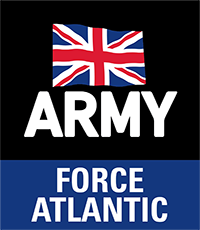Humans have been fascinated with nautical exploration since time began. Sailors and sea merchants were mentioned in the Bible, whilst maritime travel and commerce was common during ancient times. The Romans and Greeks both took to the seas to explore, and today, we remain committed more than ever to sea travel. From the shipping industry, to personal yachts, hundreds of thousands of nautical miles are covered each day around the world. Yet, despite our oceans being more trafficked than ever, they remain mostly a mystery!
How much of the ocean has been discovered?
We have been sailing the world’s oceans for centuries, but still, our oceans contain many mysteries. Much of the ocean remains uncharted, unexplored and unseen by humans. In fact, the exact percentage of the Earth’s oceans that have been explored, just might shock you!
So how much of our oceans have actually been explored? it’s a shockingly small amount, just 5 percent! Yes, you read that right, only 5 percent of the Earth’s oceans have been explored, especially below the ocean surface. The rest remains mostly undiscovered and unseen by humans.
You might say it doesn’t seem like it can be true? The oceans account for approximately 70 percent of the Earth’s surface. So, if my maths is correct, this means humans haven’t yet explored or discovered about 65 percent of Earth’s ocean surface area. If you consider the number of explorations that have occurred in space over the last few decades, it seems space exploration is moving a lot faster than ocean exploration. This is extraordinary when you think about it as space is infinite and the ocean is confined to our planet!
Where my passion and love for the ocean began...
My passion and love for the ocean has not always been plain sailing (no pun intended) or blowing bubbles when it came down to life at sea. My first experiences and exposure to the sea, diving and seamanship was back in 2009 when I embarked on my Class 2 Military Diving course. A renowned arduous diving course which involved a combination of physical activity, sleep deprivation and information overload. This was coupled with diving serials involving nil visibility dexterity tasks and fast water searches, all whilst submerged in cold water in the south of England (which made it very difficult to enjoy).
Fast forward a few years and I got the opportunity to take on the role as the Army Diving Instructor at the Joint Service Sub Aqua Dive Centre (JSSADC), a Navy centre which operated out of Fort Bovisand, Plymouth. The Fort is situated on the eastern side of the entrance to Plymouth Sound and originated in the 1840s. The new role not only enhanced my diving career professionally but also personally through gaining qualifications and vital on and in water experience. These opportunities ignited my passion and love for diving and the ocean along the way. Some people wouldn’t believe me when I said; “Plymouth is one of the best places in the world to dive and currently sits in the top 10 places in world. This is down to the city’s location, history, underwater heritage, the water conditions and abundance of underwater marine life and scenery.”
Although most of my experiences stem from time spent under the water instead of on the surface, my fascinations for the wonders of the vast ocean surfaces are still there in abundance. I have been lucky enough to visit and dive in many locations, oceans and seas around the world in my time; from the South Atlantic Ocean to the Mediterranean, Red and Baltic Seas. Every dive is a memory which offers calm and tranquillity from start to finish. I’ve also had the pleasure and opportunity to dive with so many species of marine life around the world and in the UK. I have swum with Baskin Sharks in Plymouth and dived with Oceanic White Tip and Thresher Sharks at the Brother Islands, in the south of the Red Sea. My favourite type of dive and speciality has got to be Wreck diving, Wreck diving offers so much to your diving experience; the underwater heritage, the vessels individual story and history it has to offer. Over time, Wrecks also become artificial reefs and attracts an array of marine life and species.
After tracking and following the 2020 TWAC fleet and watching their adventures unfold as they have progressed, seeing the plethora of amazing marine life they have been lucky enough to meet and enjoy; from whales and dolphins to the Blue Marlin attacks, has only added to my lust and excitement. More than ever, I'm looking forward to embarking on this amazing adventure across the Atlantic Ocean with the team, to experience all the emotions that the journey may and will bring along with it, and to see what wonders Poseidon and the sea has in store for Team Force Atlantic.
One final thought, Christopher Columbus managed to explore and navigate across the Atlantic Ocean four times in his lifetime, our team now has the opportunity to accomplish this feat once in ours. ‘Fair Winds and Following Seas’



